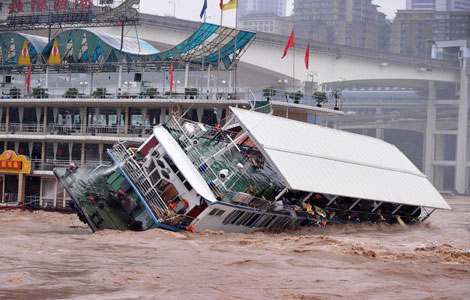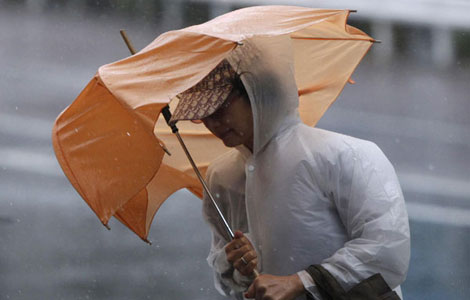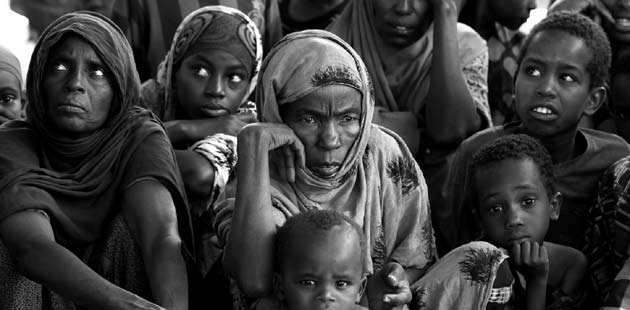Financial crisis turns to political:IMF
Updated: 2011-09-21 22:48
(Xinhua)
|
|||||||||||
WASHINGTON - The International Monetary Fund (IMF) said Wednesday the global financial crisis had moved into a "more political phase", reflecting a significant rise in sovereign vulnerabilities in advanced economies and a lack of effective policy reactions.
"Financial stability risks have increased substantially over the past few months," said the IMF in its Global Financial Stability report, a flagship product of the Washington-based international institution.
"Weaker growth prospects adversely affect both public and private balance sheets and heighten the challenge of coping with heavy debt burdens," said the report, adding that monetary policy had only limited room to provide additional stimulus.
Against this backdrop, the crisis -- now in its fifth year -- had moved into a "new, more political phase," the Fund said.
The global lending organization says there have been four phases of the crisis. The first phase started in 2007 when the "subprime crisis" threatened the collapse of US banks.
The second phase was the "banking crisis", in which the systemic banking crisis spread to Europe.
The third phase, the "sovereign crisis", featured euro area periphery sovereign debt problems and medium-term debt burdens in core advanced economies, including the US.
Now, the crisis had moved into its "political phase", in which policy makers in advanced economies had difficulties in reaching political consensus on fiscal consolidation and adjustment.
"We're back in the dangerous zone," said Jose Vinals, Financial Counsellor and Director of the IMF's Monetary and Capital Markets Department, which conducted the GFSR, at a press briefing here.
He pointed to recent global financial markets volatility, the worsening European sovereign debt crisis and the downgrade of the US credit rating.
These factors had driven the global economy into "a crisis of confidence", Vinals said.
In terms of policy solutions, Vinals called for comprehensive, bold and swift actions to repair balance sheets both for the public and private sectors.
Still, it was possible to tackle the challenge, he said.
European leaders needed to quickly implement an agreement reached in July that provides the region's bailout fund with more flexibility. The US and Japan, meanwhile, must begin to phase in steps to substantially reduce their deficits, he said.
More importantly, "we need political will," Vinals said.
The 187-member nation fund conducts economic analysis and lends money to countries in financial distress. It will hold its annual meetings with its sibling institution, the World Bank, later this week in Washington.
Related Stories
Europe to face G20 heat on euro crisis response 2011-09-21 10:40
Debt crisis may cause more trade friction 2011-09-21 07:51
France says aid impasse could spark EU food crisis 2011-09-20 23:08
Spain short-term debt costs jump after Italy cut 2011-09-20 22:52
Hot Topics
Libya conflict, Gaddafi, Oil spill, Palace Museum scandal, Inflation, Japan's new PM, Trapped miners, Mooncake tax, Weekly photos, Hurricane Irene
Editor's Picks

|

|

|

|

|

|







